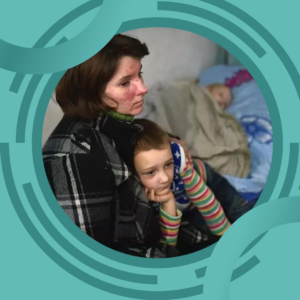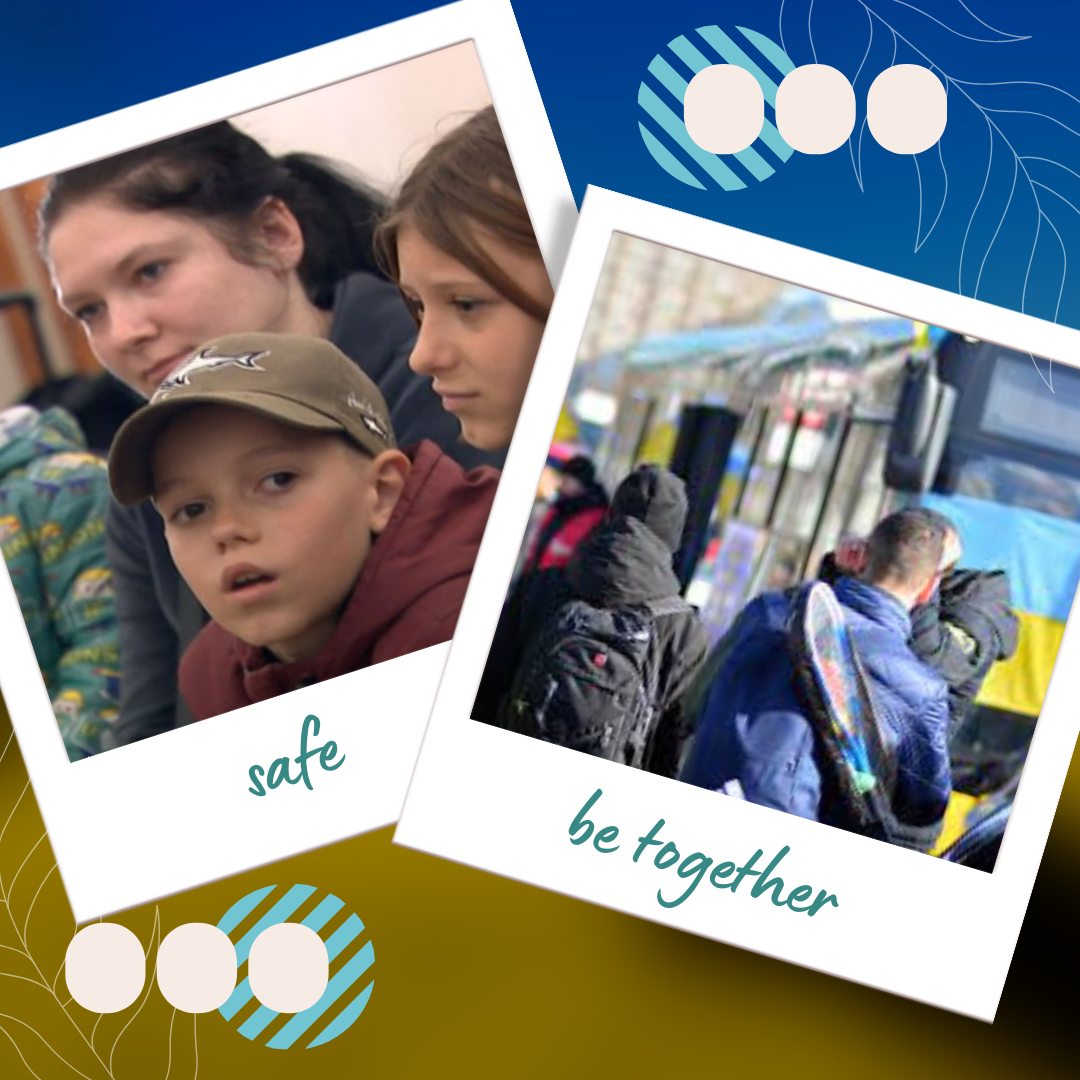After several waves of the COVID-19 pandemic, months of isolation and adaptation to new sanitary rules, we now face a new challenge. How to behave in the face of an unexpected situation? How to protect yourself and your loved ones, and finally – how to find yourself in the time of the crisis related to the influx of Ukrainians who seek refuge with us from the war?
How to receive refugees at home
First of all, we should remember that people who participated in the war found themselves in a highly traumatizing situation. Suddenly they lost their sense of security, they saw the death of people, sometimes their relatives, and injured people up close. We must bear in mind that they experience very strong emotions, such as terror, shock, fear, disbelief in what happened.
How to help them? It is worth adapting to them, „tuning in”. If they need to speak, let us listen to them. If they’re in a state of shock, numbness, and don’t want to talk, don’t insist. We can also say that we know from the media what they have experienced, and if they want to, we can talk about it, but not forcefully. We are there for them, but let’s not push.
If we welcome people fleeing the war at home, let us prepare a permanent, specific place, room or bed for them. Let us try to provide them with a sense of security. Let us make sure that the atmosphere in our home is calm, without quarrels or conflicts.
When it comes to the everyday way of communication or communication when we do not know the language – simple gestures are enough. We also have many devices that we can use, such as an interpreter on the phone. We can write the names of the items in English on a piece of paper, and our guest – in Ukrainian. You have to learn together.
In people who are under the influence of strong emotions, physiological needs take a back seat – they forget to eat something, they don’t feel like drinking. Therefore, let’s make sure to invite them to a meal or to prepare it together. These are very simple, even banal rules, but in this situation they are very useful.

Let’s also take care of the safe sleep of our guests. If they want to have the door ajar or the light on, let us comply with their request. People who have come into contact with trauma may have the so-called intrusive thoughts. Flashbacks – images they’ve seen in the past – may appear in their heads. They may have nightmares, trouble sleeping. The events they have experienced can be activated on a subconscious level, so you need to be very vigilant and careful. People who have experienced traumatic situations may develop symptoms of an acute stress reaction, which in turn may develop into a post-traumatic stress disorder. It would be good to provide them with psychological help and support. In larger cities, there are many people from Ukraine who have studied or studied psychology. You can use their help or suggest that there are many places to go for professional support from specialists, psychologists
British and Ukrainian children
Keeping children from leaking difficult information is pointless. That is why you need to talk openly and calmly, not promise the impossible, but also focus children’s attention on what is stable. „Yes, there is a war abroad now”; „You can ask me questions”; „Our country is not at war.” Content should be age appropriate. Admitting the youngest to images from the media is not recommended. Children learn about the world more from our attitudes than words. If we deal with particularly difficult issues, let’s make sure that the youngest are not listening. In other words: we will not convince a child that it is safe if we do not take care of our own balance or if our message is inconsistent. To regain mental balance, you need: sleep, movement, contact with loved ones and a regular lifestyle, and if necessary – the help of a psychotherapist or psychiatrist. Celebrating the good times doesn’t have to be desensitizing – our resources are finite and we need regeneration. Our presence and the immutability of rituals and rules are a signal for children that we have an influence on reality and that their world is „taken care of”.
Assimilation of children and youth
It is worth preparing students for changes. „There may be foreign-language children from a slightly different cultural background.” Our guests can be surprisingly different in some respects. Persons fleeing the war and previously living in Ukraine may turn out to be representatives of a different religion, ethnic race or nationality. Will we grant them asylum? The activity of Poles for refugees has become the subject of discussion and recognition in the European arena. With this attitude, we help young people to develop empathy and interpersonal skills, to cultivate the solidarity and kindness we need.
Those who have participated in the war may be mourning and suffering from post-traumatic stress disorder (PTSD), which develops as a result of a life-or health-threatening experience. They may react badly to, for example, noise, sudden sounds, movements or other stimuli: smell, touch, sound. It is important to avoid generating such situations when you already know what might be causing you to relive dramatic situations from the past.
You shouldn’t insist on confiding, and it’s worth talking about your feelings at the same time. This has a relieving effect. Instead of saying, „Don’t cry,” „Everything’s gonna be fine,” it doesn’t hurt to ask, „How can I help you?” or to be and to be let to cry. Emotions come back in waves and don’t pass quickly. It is worth warning young people that „supporting” colleagues with alcohol and other substances may give the impression of a temporary relief, but can have tragic consequences.
In the context of us as hosts and our children, it is worth paying attention to different behaviors than before. Our pupils also face a lot of stress and may experience a crisis in parallel to our guests. Not knowing the language does not have to be a barrier to being kind. The few-year-olds know it best, ready to invite them to fun and games. We can learn from them.
For students, collaboration between school and home can result in better mental health.

